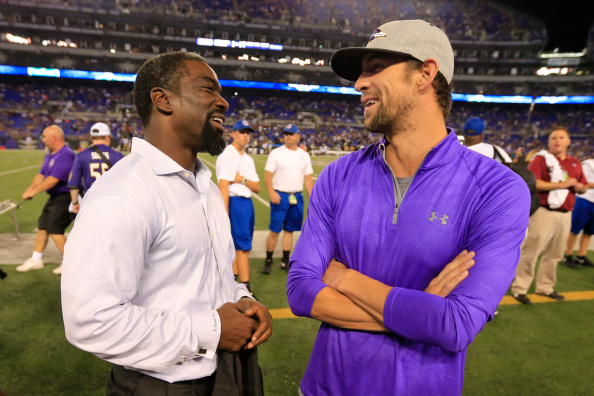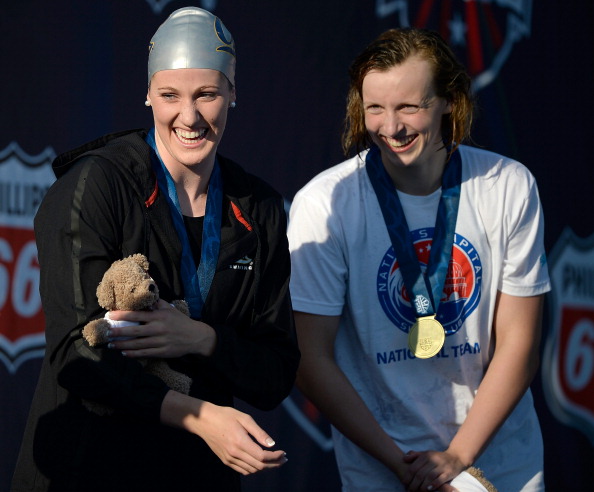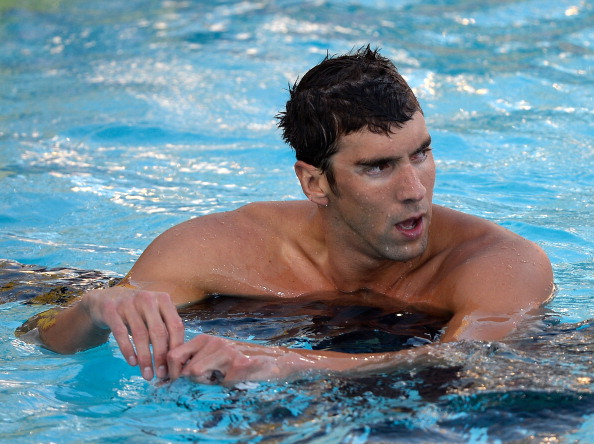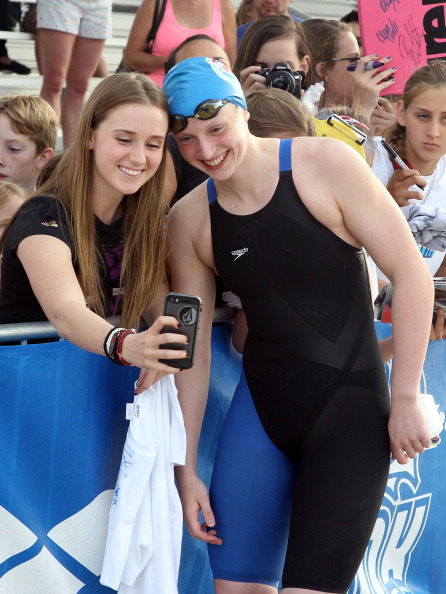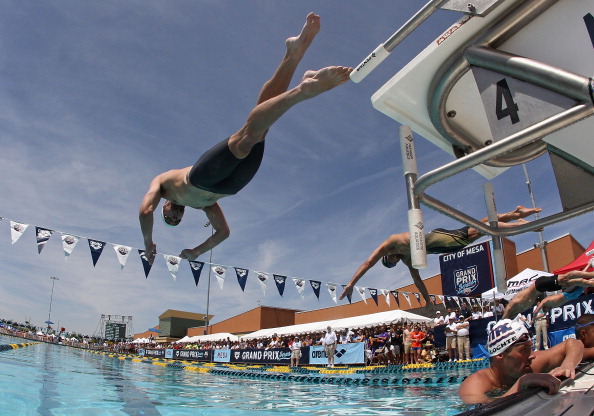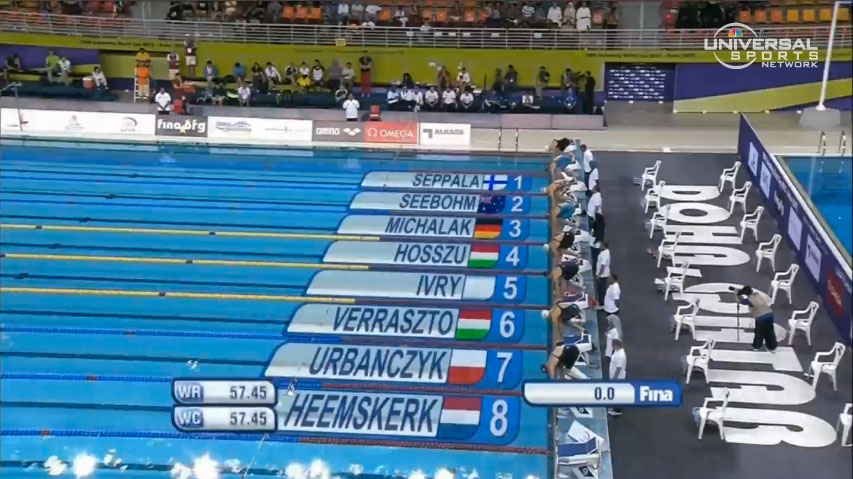Michael Phelps is not a bad guy. Let’s start there. In fact, he’s a really, really good guy. He cares — deeply — about his family, his coaches, the people who have been with him for years, his hometown, his country and his sport. He is, genuinely, great with kids. He is, truly, a normal guy who found a genius for swimming and competing.
By driving drunk, according to the allegations levied against him by the authorities in Maryland, Michael made a really bad mistake. Perhaps the hardest piece: Michael has said many, many times, often to audiences of kids, that it’s OK to make a mistake — the trick is not to make the same mistake twice. Now, in the wake of his DUI problem 10 years ago, he has made the very same mistake, all over again.
The separate DUI incidents — of course, Michael is entitled to the presumption of innocence in regard to his arrest this week — are compounded by the 2009 episode in which he was photographed with his face in a bong.
Phelps was stopped at 1:40 a.m. Tuesday after leaving the brand-new Horseshoe Casino in downtown Baltimore, allegedly going 84 in a 45 zone. His blood-alcohol level was a reported 0.14, above the legal limit of 0.08.
The incident leads to all manner of questions, concerns and what-to-do’s — for Michael, USA Swimming, the U.S. Olympic Committee, Michael’s sponsors and everyone anywhere with an interest in the greatest Olympic athlete of all time.
That is, indisputably, what Michael is.
And that, actually, is at the core of all of this.
Michael is 29 now. Old enough, assuredly smart enough to know better, to have the judgment to call Uber. A taxi. A friend. Something or someone.
Michael’s first DUI came when he was 19, in November 2004, after the Athens Games. At that time in his life, as he has said, post-Games he had no structure, no routine. He was on a road trip to Maryland’s Eastern Shore with a friend. He had three beers. His blood-alcohol reading was precisely 0.08.
He pleaded guilty a month later in Salisbury, Maryland, to driving while impaired; was ordered to pay $305 in fines and court costs; to attend a meeting of Mothers Against Drunk Driving; and to speak at a number of schools about drinking, driving and decision-making.
USA Swimming did not suspend him.
The experience would lead Michael to Greg Harden, the longtime associate athletic director and director of athletic counseling at the University of Michigan. Harden gave Michael the advice that Michael would internalize, would make his own, would repeat as if it were a mantra:
It’s OK to make a mistake. Whenever you make a mistake, learn from it. If you learn from a mistake, you’ll be fine. Just don’t make the same mistake twice.
Among the challenges Michael is facing is that he has now violated his own code.
Michael and I worked together on his 2008 best-selling book and for sure we have long had a constructive relationship. We have not spoken this week. But I know him well enough to feel confident that no one feels worse about what happened than Michael.
I know, too, that he will deal with whatever is to come forthrightly. That is his way.
The issue is, what is appropriate?
Michael is a Baltimore guy through and through. He spent a few years in Ann Arbor, prepping for the 2008 Beijing Olympics while his longtime coach and mentor, Bob Bowman, was the head coach at the university. But now they are both back in Baltimore.
Michael is not — will never be — Hollywood. He is, for emphasis, a normal guy. He is happy to be in Baltimore, cheering on his Ravens like most everybody else there.
The deal is this, though: it may not be the best time to be a high-profile athlete facing the bar of justice in Baltimore, what with Ray Rice in the news. Under the law, Michael’s first DUI is irrelevant. At the same time, Michael has to accept that he might draw a judge who wants to make an example of him.
Beyond the legal ramifications, there is the matter of USA Swimming, indeed the Olympic establishment.
USA Swimming suspended him for three months for the 2009 episode. Now?
USA Today’s Christine Brennan suggested in a column Wednesday that Michael ought to be suspended for at least a year. She called his behavior “unconscionable.”
With due respect to my good friend Christine — she and I are from the same class at the Northwestern journalism school— her suggestion is over the top.
To compare:
The NFL suspended Donté Stallworth for a year after he pleaded guilty to DUI manslaughter charges in Florida. On March 14, 2009, in Miami, Stallworth killed a man while driving drunk.
To be clear, driving while impaired — again, Phelps is innocent until proven guilty — is bad no matter the circumstance.
In Stallworth’s case, for context, Stallworth’s blood-alcohol level was 0.126 and, of course, Mario Reyes, a construction worker who was simply trying to catch a bus home, is forever gone.
A prosecution video in the Stallworth case shows Stallworth braking immediately after Reyes ran into the street, outside the crosswalk — meaning, Stallworth has said, that even if sober he likely would have hit Reyes. But as Stallworth said in an interview this past summer, “.. I was wrong. I was driving under the influence and should not have been.”
Now, the argument is that Phelps should be gone for a year when no one -- luckily, true -- got hurt?
Things have to remain in proportion.
USA Swimming has said it’s assessing the situation.
It seems probable that Michael is going to be fined — other athletes are going to want to see that no one is above the rules, especially Michael — and suspended for some period of time. The issue is when and for how long. The 2015 world championships are next summer in Russia.
This leads to the crux of the matter, for all involved.
Michael has a boredom problem. The boredom problem creates a structure problem. The overarching problem is that there's a future problem.
It’s little wonder he is out presumably playing poker — which he enjoys — and, as he purportedly said to the police, having three or four drinks when he should have been in bed getting ready to swim.
Again, here is the deal:
Michael is the greatest of all time. He has 22 Olympic medals.
In Beijing, he went eight-for-eight. It was — incredible.
To do what he did in Beijing took years of monumental discipline, effort, focus and training. (Not to mention an awe-inspiring back-end split from Jason Lezak in the 400-meter freestyle relay.) Who wants to do that all over again? For sure not Michael.
This is the dilemma.
Michael knows that if he puts in the work that he can again be the world’s best swimmer — in certain races. But never again will he do what he did in Beijing. This is a terrible burden. For real. What must it be like to be great but never again as across-the-board great as you once were?
Michael talks about setting new goals. But swimming is the most relentlessly revealing of the Olympic sports. At the elite level, the sport is merciless in making clear whether an athlete has put in the work. You win -- or lose -- by hundredths of a second.
This is, in one fashion or another, what Michael has been wrestling with since the day the Beijing Games ended.
You saw it in 2011, at the world championships in Shanghai, where Ryan Lochte had put in the work, and Michael had not. In 2012, Michael tried the 400-meter individual medley, which he used to rule, and didn’t even medal — because he hadn’t trained sufficiently.
After the 400 IM, it became plain in London that Michael had done enough — just enough — to still star. But because he hadn’t really done everything he could have, he got out-touched by five-hundredths of a second in the 200 butterfly by Chad le Clos of South Africa — an ending that depended on feel in the water, feel that Phelps would have had, did have, in the 100 fly in Beijing, which he won by one-hundredth of a second over Serbia’s Milorad Cavic.
After London, Michael said, enough.
Then he watched the Americans come up short in the 400 free relay at the 2013 worlds in Barcelona and something stirred.
So he kinda-sorta came back.
Then, this year, he came back for real — and did very well at the Pan-Pacific championships in August in Australia, winning three gold medals and two silvers.
The good thing about the comeback is it gives Michael structure. He needs that sort of structure.
But obviously he's not yet all-in. On the road at 1:40 a.m.?
At the same time, and this must be said, this comeback is only prolonging the inevitable.
If Michael keeps swimming through 2016, it seems hugely unlikely that he would not make the U.S. team for Rio. Everyone says, like this is a bad thing, he’d be 31 by the start of those Games, in August, 2016. So what? He’s Michael. He's the best-ever. If he wants it, he will do it -- emphasis on the if.
Who, though, is Michael? Really, who is he? Not Michael the swimmer. Michael Phelps. At 29, who is he? And what is he all about?
Michael should take a good look at the guy looking back at him in the mirror and say, OK, what's the next chapter?
If he can do that, this DUI episode could — in a weird way — turn out to be a huge positive. Again, Michael should count his blessings that no one got hurt. He should not just count this as, but legitimately come to see this as, a second chance -- at everything.
He has it all, you say?
Not really. Michael doesn't know what he wants to do with himself.
When Michael was 16, he had the audacity to tell Peter Carlisle, who would go on to be his agent — still is his agent — that his goal was to grow the sport of swimming. He could see that already.
He hasn’t been able with the same clarity to articulate anything else. That’s where the drift has come. Now is the time to figure it out — especially if there is to be a suspension.
It seems reasonable to assume that, however this shakes out, Michael is going to find himself doing community service. And part of that service will involve speaking to kids. And those kids are going to ask, Michael, you always said it was OK to make a mistake but not to make it twice — what do you say now?
And if the other part of the code is learning from every mistake -- what are the lessons from this one?
Now is the time to figure all this out. Because that is a huge part of this next chapter. Of being accountable to himself and to everyone around him -- because he is normal, and yet in some respects his life is not normal and likely never will be. Of figuring out who Michael Phelps is, and what his next direction holds.

